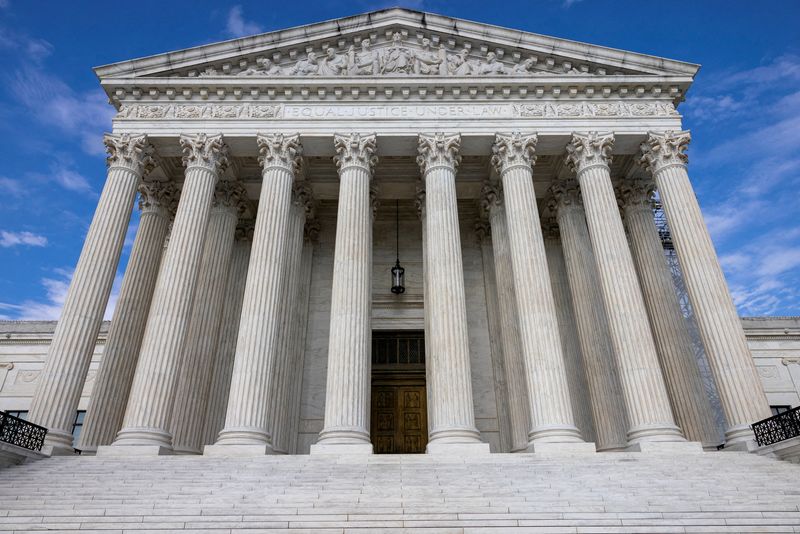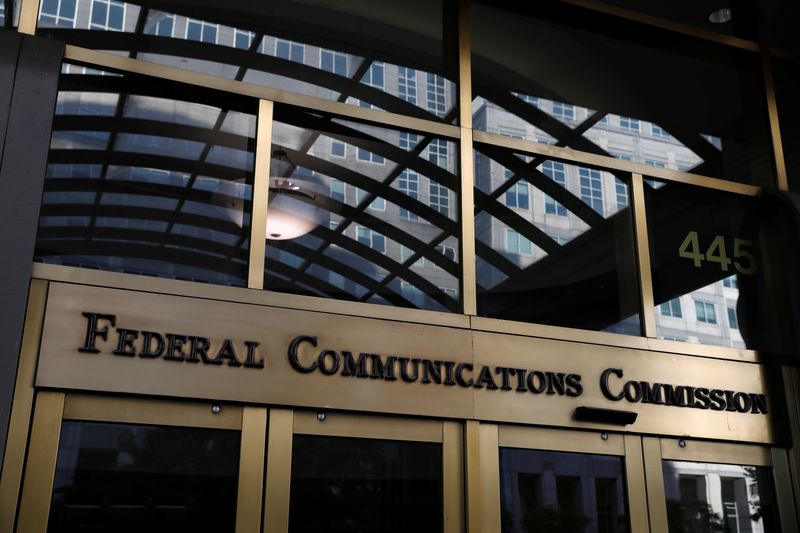By John Kruzel
WASHINGTON (Reuters) -The U.S. Supreme Court agreed on Friday to decide the legality of a congressionally authorized fund operated by the Federal Communications Commission to expand access to telecommunications services in a challenge accusing Congress of unlawfully delegating its authority to an independent federal agency.
The justices took up an appeal by the FCC (BME:FCC) and a coalition of interest groups and telecommunications firms of a lower court's decision that found Congress violated the U.S. Constitution by empowering the FCC to manage the fund. The court is expected to hear arguments in the case and issue a ruling by the end of June.
Congress in a federal law called the Telecommunications Act of 1996 authorized the FCC to operate the Universal Service Fund to promote broad access to services such as phone and broadband internet.
All telecommunications carriers contribute to the fund, which draws around $9 billion annually. The fund helps to extend service to people in rural areas, provides subsidies for low-income Americans, expands service in Native American tribal lands and assists schools and libraries.
A group of challengers including the conservative group Consumers' Research filed lawsuits against the FCC and the U.S. government, arguing that Congress delegated its revenue-raising function to the FCC in violation of the Constitution. The challengers also argued that the FCC unlawfully transferred its authority to the Universal Service Administrative Company, a private nonprofit that helps the agency administer the fund.
The case involves the non-delegation doctrine, a legal concept that embraces the view that Congress cannot delegate the legislative powers given to it under the Constitution to other entities. The legality of the FCC's handoff of power involves a similar concept known as the private non-delegation doctrine.
The FCC was established as an independent federal agency by the Communications Act of 1934 and is overseen by Congress.
Federal appellate courts have reached different conclusions on the legal question at issue in the case.
The Supreme Court on Friday agreed to review a ruling by the New Orleans-based 5th U.S. Circuit Court of Appeals that found the funding arrangement unconstitutional, granting an appeal by the FCC and various interest groups.
FCC Chair Jessica Rosenworcel hailed the court's decision to hear the agency's appeal.
"For decades, there has been broad, bipartisan support for the Universal Service Fund and the FCC programs that help communications reach the most rural and least-connected households in the United States, as well as hospitals, schools, and libraries nationwide," she said. "I am hopeful that the Supreme Court will overturn the decision that put this vital system at risk."
Three industry groups representing telecommunications companies said in a joint statement they were pleased the high court will review the lower court ruling.
"It threatens to undermine universal service programs that, for many decades, have served to promote the availability and affordability of critical communications services for millions of rural and low-income consumers, rural health care facilities, and schools and libraries across the nation," said the Rural Broadband Association, Competitive Carriers Association and USTelecom, which represent AT&T (NYSE:T) , Verizon (NYSE:VZ), T-Mobile and other major companies.

The justices have not acted on separate appeals by Consumers' Research and other interested parties of lower court rulings that found the funding arrangement constitutional.
The Supreme Court, which has a 6-3 conservative majority, has reined in the actions of federal regulatory agencies in a series of rulings in recent years, though those cases did not involve the non-delegation doctrine.
